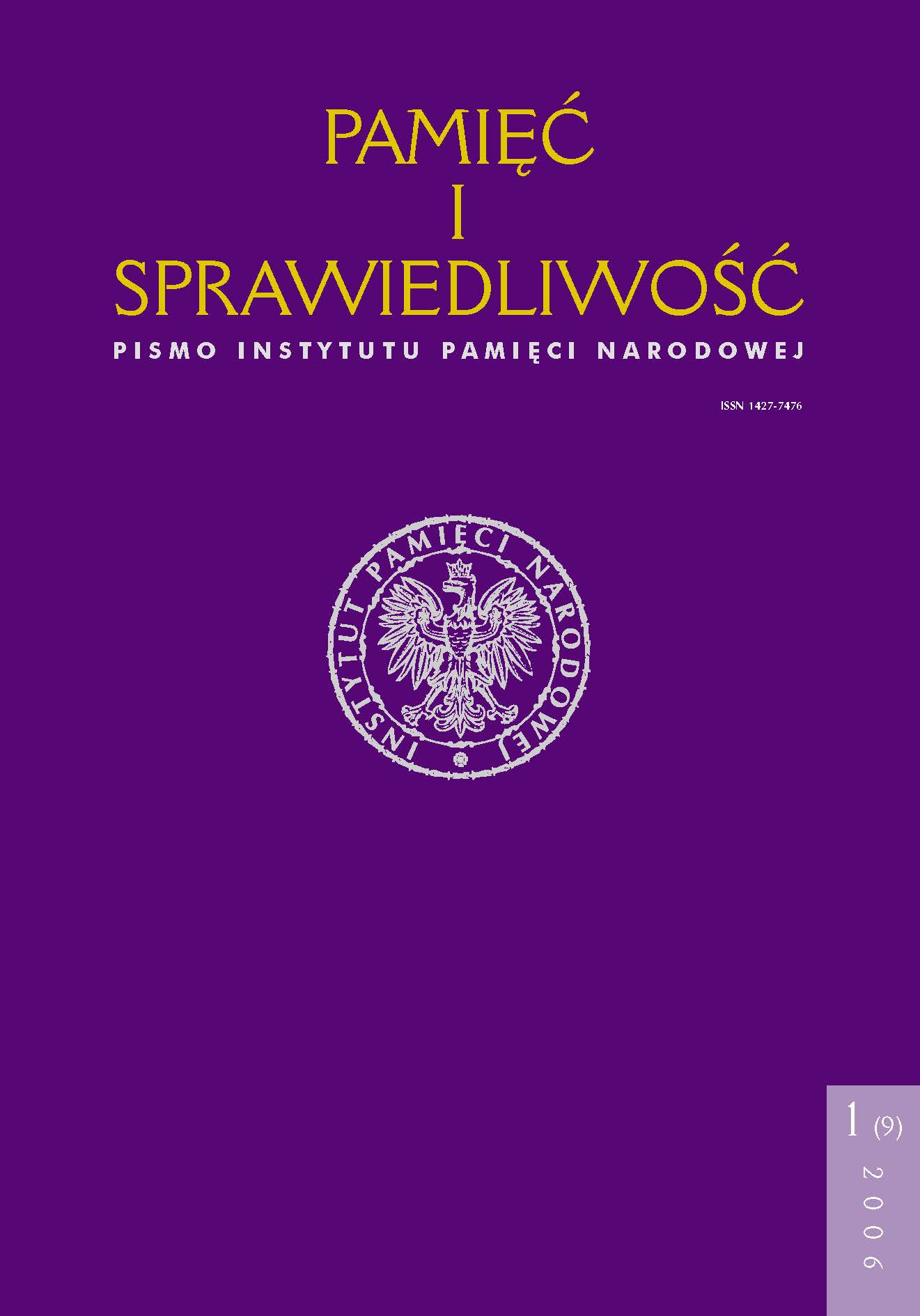Funkcjonowanie rad i komitetów rewolucyjnych w Budapeszcie na jesieni 1956 roku
Pamięć i Sprawiedliwość, Bd. 9 Nr. 1 (2006), pages: 337-355
Publication date: 2006-06-30
Abstract
Revolution committees existing in the period of national uprising in Hungary in October and November 1956 were an extremely important element of the activity of democratic forces and an expression of revival of self-government institutions, which in
the previous centuries played an important role in shaping a parliamentary democracy in this country. The committees tried to organize the political life and provide solutions for current political and social problems. They were created in almost every institution and plant in Hungary, and often their aim was to draw the authorities of communist origin back from the power. In the countryside their introduction was arousing hope for restoring
the pre-war land owning situation. There was a wide range of revolution committees and councils, they were also created among political prisoners who were released during the uprising, ministry employees and in such strategic companies as Hungarian State Railways. The Central Workers’ Council of the Great Budapest in Budapest was a kind of supervisory authority. These institutions were also advisors in the Nagy government. Their functioning was at large terminated by the Soviet intervention. The most important committees, as the Central Workers’ Council of the Great Budapest, had to be counted with to such an extent, that Soviet authorities had negotiated the way of dissolving them with their members, after which the latter were arrested and sentenced. The functioning of committees and councils was connected with revival of political parties existing in the interwar period, because one of the basic demands of the committees sent to the government was reintroduction of the multiparty system, common and democratic parliament elections and leaving the Warsaw Treaty.
Am häufigsten gelesenen Artikel dieser/dieses Autor/in
- Tadeusz Kopyś, Polityka wewnętrzna Rumunii w okresie powstania NSZZ „Solidarność” , Pamięć i Sprawiedliwość: Bd. 16 Nr. 2 (2010)
- Tadeusz Kopyś, Współpraca polskiej i węgierskiej opozycji w latach osiemdziesiątych XX wieku , Pamięć i Sprawiedliwość: Bd. 16 Nr. 2 (2010)
 Język Polski
Język Polski
 English
English
 Deutsch
Deutsch
 Français (France)
Français (France)
 Italiano
Italiano
 Русский
Русский


 PDF (Język Polski)
PDF (Język Polski)
